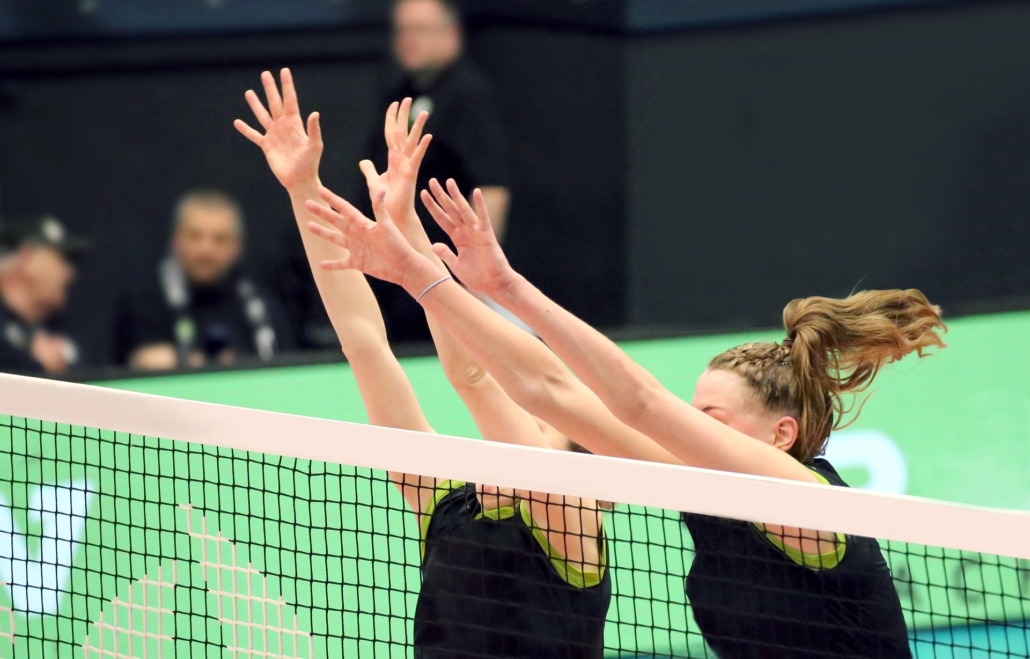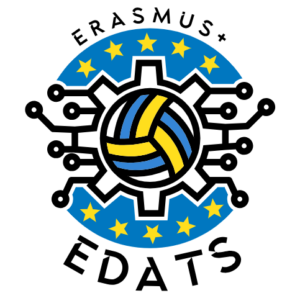The main aim of the EDATS project
The document “Guidelines on how to improve the psychological and social well being of athletes in the sporting context”, was drawn up thanks to the contribution of all the partners of the EDATS project and thanks to the professionalism present in each organization. Unica took care of the paragraph “Use of digital technologies in the sports context” thanks to the specialist contribution of Prof. Massimiliano Pau, the topics “Coach-athlete relationship” and “Gender equality and social inclusion” were edited by Dr. Andrja Geric, Sports Psychologist and Mental Coach (Sk Volley), while the “Environmental sustainability” section was written by Claudio Congiu (Alfieri) and Konrad Rechnio (UKS).
The drafting of the document was started in June 2024 and the drafting was completed in November 2024.
The document constitutes an initial analysis of needs and first basic research in relation to the well-being of the issues addressed, i.e. the health and well-being of athletes, injury prevention, the coach-athlete relationship, gender equality in sports environments and social inclusion.
The implementatiopn phase of the project to which the document is linked concerns the implementation of methodologies to detect and process biomechanical data.
The target group of reference is made up of coaches, young athletes, sports managers and research professionals, for whom the paper will be useful to implement the subsequent training and awareness phases.

The “Guidelines” provide useful suggestions and guidance on how to improve the psychological and social well-being of athletes in the sports context, the coach athlete relationship, how sport can be a tool for social inclusion, how technology can help sportsmen and how to promote gender equality in sport and environmental sustainability in sport. A specific section of the document has been dedicated to each of these topics.
The main aim of the EDATS project is to support and encourage the professional and sporting careers of young athletes through the development and integration of digital technology that are accessible, easy-to-use and effective. This will be achieved through the pursuit of four specific goals:
- By increasing collaboration between sports professionals and professionals experienced in applied digital technology;
- By providing specific training on sport injury prevention to sports managers, coaches and young athletes;
- By promoting the psychological and social well-being of athletes in sporting contexts;
- By promoting awareness of environmental sustainability in sport and knowledge of European programs among young sportspeople and coaches.
The project approach is based on research and data collection, transnational and interdisciplinary dialogue through contributions from the partnership entities, testing of training programs, and implementation of tools to disseminate the results obtained and use them locally and internationally.
In the initial phases of the project, a series of activities aimed at realizing a greater increase in collaboration between sports professionals and professionals experienced in applied digital technologies. Based on such activities, the present document provides common guidelines on several aspects considered fundamental in the development of the EDATS initiative. In particular, the following areas have been covered:
- How to improve the coach – athlete relationship;
- How sport can represent a valid tool to enhance social inclusion;
- How technology can help sportsmen and sportswomen;
- How to promote gender equality and sustainability in sport.
Such activity has been carried out by considering, in the first place, the needs expressed by final users (particularly, trainers) using dedicated tools like questionnaires and focus groups.
Needs analysis and best practices in training
methodologies.
Introduction
To develop a comprehensive understanding of what are the potential best
practices in terms of biomechanical data collection for sports training, we
employed a multi-phase methodology, which combines data obtained through
questionnaires administered to stakeholders (i.e., trainers, strength and
conditioning coaches, etc.) and extracted by collaborative discussions among
project partners. This approach allowed for a diverse range of insights, addressing
both technical and contextual factors critical to an effective biomechanical data
collection protocol.
Questionnaire Development
The first step was to create a structured questionnaire, aimed at gathering detailed
information on the current use of biomechanical data collection systems,
particularly as regards the types of sensors employed, as well as the perceived
benefits and challenges associated with the use of technology to obtain
quantitative information about relevant biomechanical parameters. This
questionnaire was designed to be administered to a wide range of users involved
in different sport disciplines (not only volleyball) to ensure the broadest possible
applicability of the findings. To create an effective survey, the project team
identified core themes based on previous research and expert consultations,
including injury prevention, training methodologies, sensor technology,
environmental sustainability, gender equality, and social inclusion.
Data Collection
Once finalized, the questionnaire was distributed among athletes, coaches, and
other sports professionals across various sports disciplines. The goal was to gather
quantitative and qualitative data on the practical experiences as well as the
opinions of respondents. In addition to questions on technical aspects of data
collection systems and sensors, the survey included open-ended questions that
allowed respondents to discuss challenges, recommend improvements, and share
insights on inclusivity and sustainability in sports.
Discussion and Analysis among Project Partners
Following data collection, the results were shared and discussed in a series of
collaborative sessions planned among the project partners. These discussions
served two main purposes:
-
Data Interpretation
- Project partners analyzed the aggregated data to identify common
challenges, effective practices, and emerging trends.
- Project partners analyzed the aggregated data to identify common
-
Needs Assessment
- Insights from focus group discussions informed a needs analysis focused on
injury prevention, coach-athlete dynamics, digital technology integration,
sustainability, and inclusivity. These sessions enabled the team to align on
shared goals, prioritize key findings, and explore potential applications
across different sports environments.
- Insights from focus group discussions informed a needs analysis focused on
Through this methodology, the project aimed to establish a common protocol for
biomechanical data collection that is informed by real-world insights and
collaborative expertise. The following sections present the findings and
recommendations derived from this structured approach.
Funded by the European Union. Views and opinions expressed are however those of the author(s) only and do not necessarily reflect those of the European Union or the European Education and Culture Executive Agency (EACEA). Neither the European Union nor EACEA can be held responsible for them.



